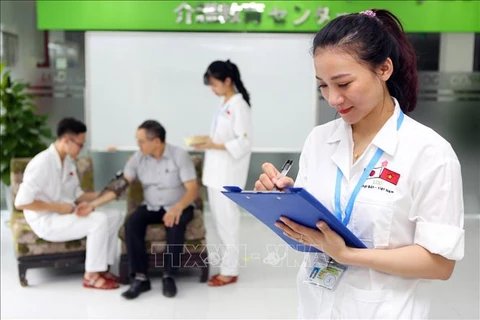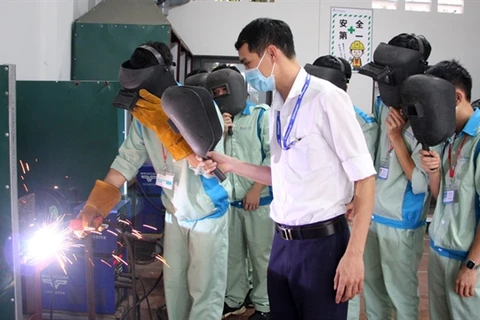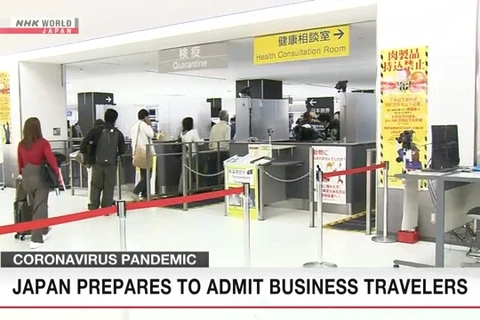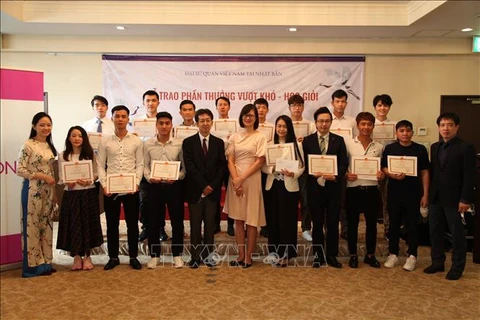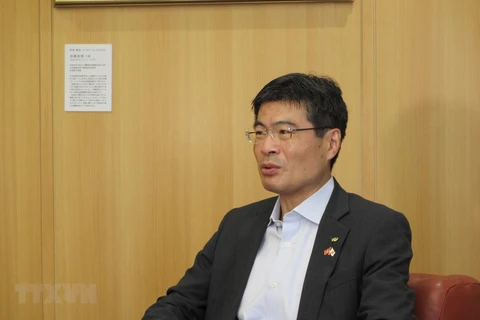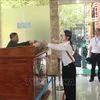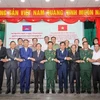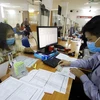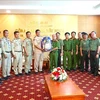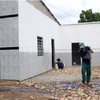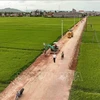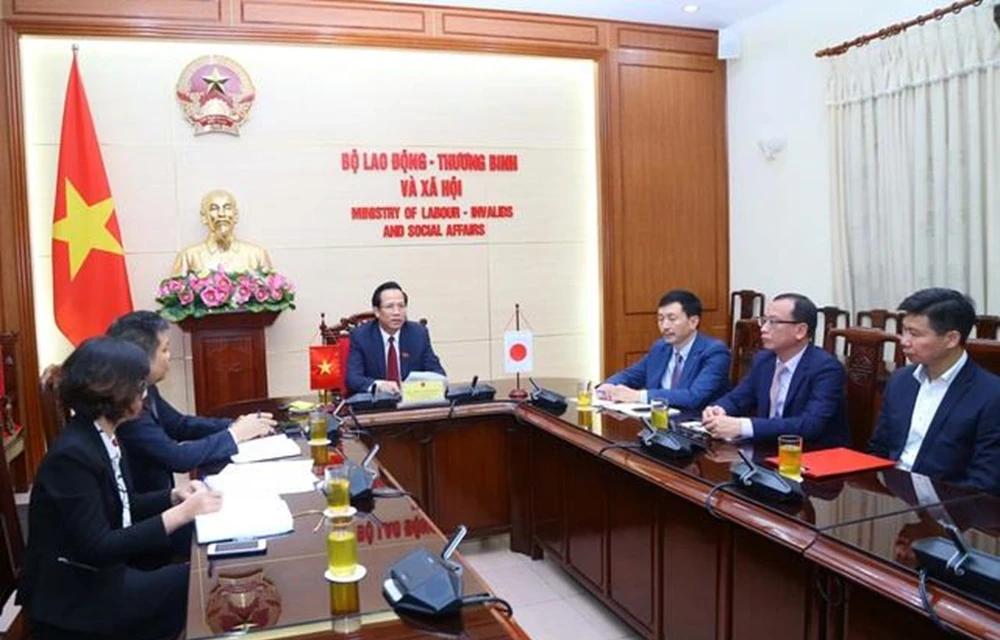
Hanoi (VNA) - Vietnam and Japan are working together to address problems related to the sending of Vietnamese trainees to Japan that have arisen in the context of the COVID-19 pandemic.
Due to the pandemic, nearly 40,000 Vietnamese trainees are still waiting for their departure to Japan, while about 15,000 trainees have completed their contracts in Japan but are unable to return home.
The information was released at a webinar on providing skill training for trainees, the first of its kind, which was jointly held online by the Vietnamese Embassy in Japan, the Japan-Vietnam Exchange Organisation, and the AIC group on November 16.
Re-opening door for Vietnamese trainees
The webinar saw the participation of representatives from Vietnam’s Ministry of Labour, Invalids and Social Affairs and Japan’s Foreign Ministry. Discussions focused on measures to facilitate and well implement the programme on sending Vietnamese trainees to Japan in the new situation.
The two sides also took the occasion to seek ways to address problems related to the programme, especially those arising recently due to the impact of the COVID-19 pandemic.
Minister of Labour, Invalids and Social Affairs Dao Ngoc Dung underlined the severe impact of the pandemic on the sending of workers abroad. Tens of thousands of workers in Vietnam have qualified for trainees’ contracts and completed orientation training, but they are yet to go to Japan due to travel restrictions.
For this reason, the minister welcomed the Japanese Government’s recent decision to re-open the door for foreign workers.
For the Japanese side, a representative from the Foreign Ministry, Kobayashi Koya said foreign trainees play an important role in supporting Japan’s economic growth, so Japan has decided to resume the reception of Vietnamese trainees. Upon arriving in Japan, the trainees will receive health checks and have to stay in quarantine for two weeks before starting their contracts.
To facilitate the sending of trainees, Minister Dung proposed that labour export companies work together to send their trainees on the same flight, thus saving costs for both the companies and the trainees, while meeting the needs of the two countries.
Stopping bad intermediary companies
As COVID-19 spreads, many trainee receiving companies and Vietnamese trainees in Japan have been suffered from negative effects.
Kobayashi said as the pandemic prolongs, the living conditions of trainees have worsened. Many of them lost their jobs but they cannot return to Vietnam.
Minister Dung mentioned problems such as trainees violating the host country’s laws, leaving their jobs, or overstaying their visas. The main cause of such problems is the poor work of recruitment companies in selecting candidates and providing language training and job orientation for trainees before sending them to Japan. Labourer management organisations of the two countries have taken measures recently to address such problems.
The Japanese representative affirmed that Japan will do its best to eliminate bad intermediary companies and end the situation of trainees having to pay too many kinds of fees before leaving for work, as well as to improve the living and working conditions for Vietnamese trainees in Japan.
The Japanese Foreign Ministry will continue to work with related ministries and agencies to ensure that young people wishing to learn professional skills in Japan can realize their dream and work whole-heartedly, he said.
According to Minister Dung, the Ministry of Labour, Invalids and Social Affairs has withdrawn the licences of many bad intermediary companies and suspended the operation of those which had committed violations, with the determination to eliminate such companies from the programme on sending trainees to Japan.
To improve the programme’s effectiveness, the minister asked the Japanese side to continue directing related agencies to coordinate closely with the Vietnamese Ministry of Labour, Invalids and Social Affairs for the effective enforcement of regulations issued by the two sides./.

